What is Semrush? Here’s What I Learned After Using It
Semrush is a digital marketing platform offering tools for SEO, PPC, content marketing, and competitive analysis to boost online visibility. Read my hands-on take to see how well Semrush performs in real campaigns.
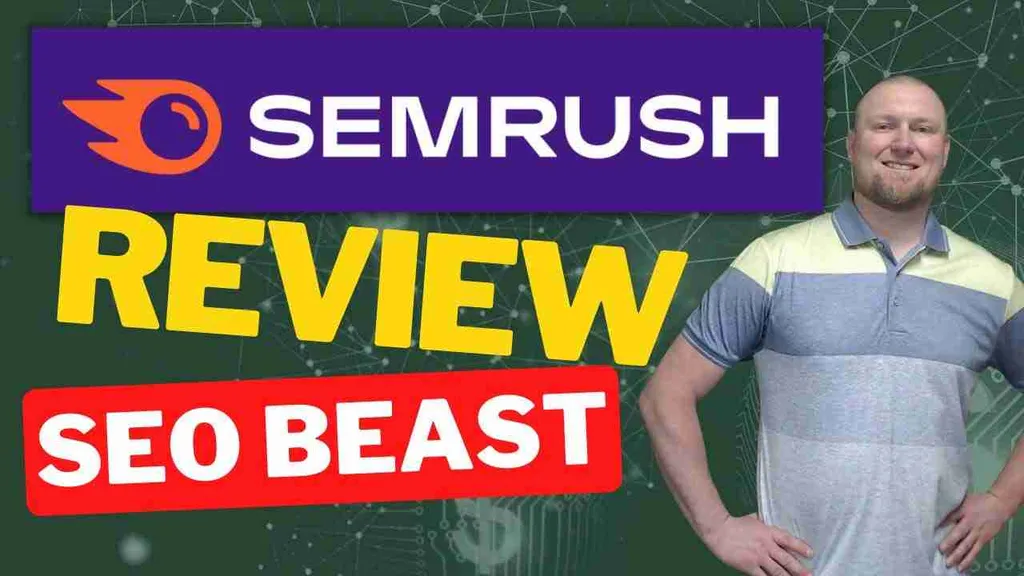
Trying to boost your website's visibility online? You've likely come across Semrush. It's a big name in the digital marketing world, and I’ve spent considerable time using its extensive toolkit. This platform packs a lot of features, so I'm breaking down what Semrush is, its core functions, and who benefits most from it, all from my hands-on experience.
For more info feel free to watch my full video review below.
What is Semrush?
Semrush is an online visibility management and content marketing platform. That’s a mouthful, but basically, it’s a suite of tools designed to help you improve your online presence and discover marketing insights. Businesses and marketers use it to get a better handle on their performance in search engines, find opportunities to get more traffic, and understand what their competitors are up to. It’s not just about SEO; it touches on content, advertising, social media, and competitive research.
How Does Semrush Work?
Semrush works by collecting and processing massive amounts of data from the internet. Think of it as having a giant database of keywords, websites, backlinks, and ad information. When you use a tool within Semrush, like entering a domain or a keyword, the platform pulls relevant data from its databases and presents it to you in a structured way.
For example, if you want to see what keywords your competitor is ranking for, Semrush has already crawled the web, indexed sites, and stored this information. It then shows you that data, along with metrics like search volume and keyword difficulty. It also uses algorithms to provide scores like "Authority Score" for domains, giving you a quick idea of a website's overall quality and SEO influence.
What is Semrush Used For?
Semrush has a wide range of applications, covering several key areas of digital marketing.
SEO (Search Engine Optimization)
This is where Semrush really shines and what it's best known for. You can do keyword research to find terms people are searching for, analyze backlinks (yours and your competitors'), run technical site audits to find and fix website issues, and track your search engine rankings for target keywords. The Keyword Magic Tool is incredibly useful for finding keyword ideas and filtering them down. The site audit feature is also key for checking your site’s health.
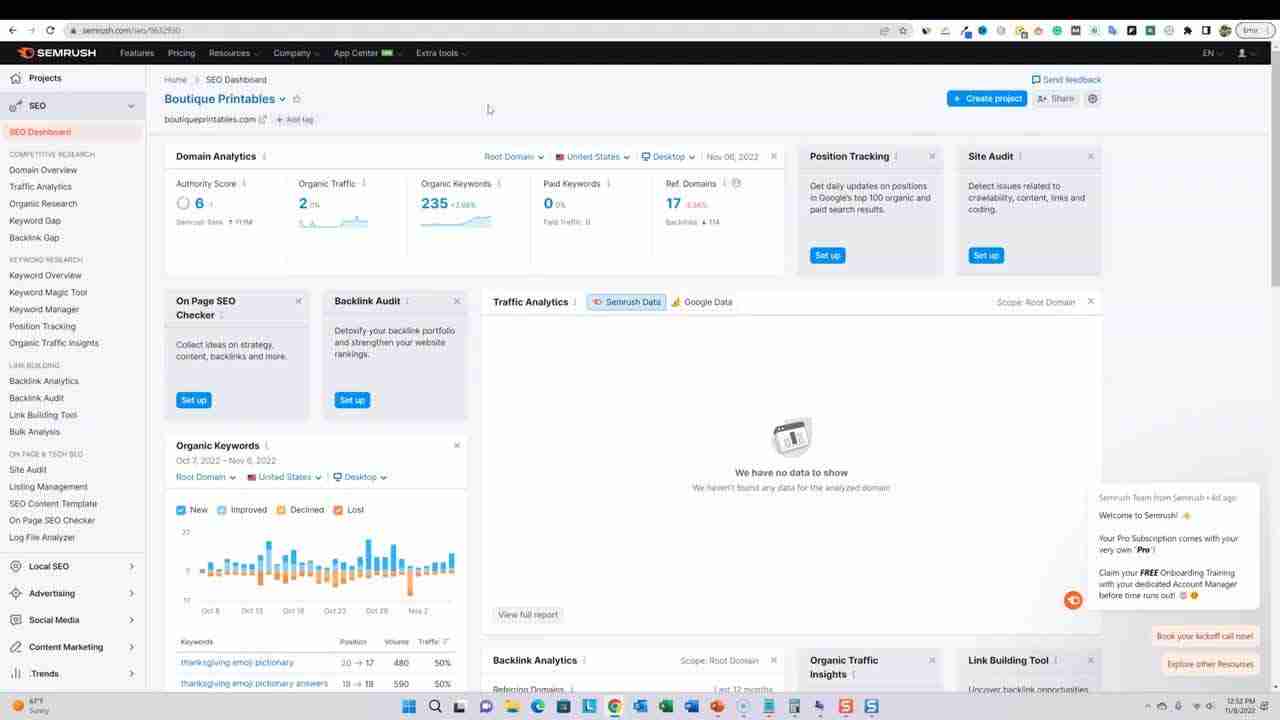
Content Marketing
Content is king, as they say, and Semrush has tools to help with that too. You can find content ideas based on what’s trending or what questions people are asking. The SEO Content Template helps you create content briefs by analyzing top-ranking pages for your target keyword, giving your writers a solid roadmap. There's also an On-Page SEO Checker that provides suggestions for improving your existing content based on competitor analysis.
PPC (Pay-Per-Click) Advertising
If you're running paid ad campaigns, Semrush offers tools to research keywords for your ads, analyze competitors' ad copy and strategies, and monitor your campaign performance. You can see what keywords competitors are bidding on and get ideas for your own campaigns. This can save a lot of guesswork and budget.
Social Media Marketing
Semrush has a social media toolkit that allows you to schedule posts, track your social media performance, and analyze competitor activity. While not a deep dive area in my video review, it's there for those who want an integrated approach to managing their social presence.
Market Analysis
Understanding your market is super important. Semrush provides tools for market analysis, like Traffic Analytics, which gives you insights into competitors' website traffic, audience behavior, and engagement. This can help you identify market trends, understand your audience better, and find new opportunities. Some of these features are part of add-on packages like Semrush .Trends.
Who Uses Semrush?
Given its broad set of tools, Semrush caters to a variety of users.
Marketing Professionals and Teams
This is a big one. SEO specialists, content marketers, PPC managers, and digital marketing agencies rely on Semrush for their day-to-day work. The platform offers the depth and breadth of data needed to manage client campaigns or in-house marketing efforts effectively. The ability to generate reports and collaborate is also a plus for teams.
Business Owners & Entrepreneurs
Small to medium-sized business owners and solo entrepreneurs who are serious about growing their online presence can find a lot of value in Semrush. While it might seem complex at first, the insights gained can directly impact a business's visibility and lead generation. Even using a few core tools, like keyword research and site audit, can make a big difference.
Enterprises
Larger companies with significant digital marketing operations also use Semrush. The platform's ability to handle large amounts of data, track numerous keywords and projects, and provide API access makes it suitable for enterprise-level needs.
What are the Main Features of Semrush?
Semrush organizes its features into several toolkits. Here’s a look at some of the main ones:
SEO Toolkit
This is the heart of Semrush. It includes:
- Keyword Research: Tools like Keyword Overview and the Keyword Magic Tool help you find and analyze keywords. You can find search volumes, difficulty scores, intent, and related terms.
- Competitor Analysis: Tools like Domain Overview and Organic Research let you spy on your competitors’ SEO strategies, top keywords, and traffic.
- Link Building: Features for backlink analysis (Backlink Analytics, Backlink Audit) and tools to find link-building opportunities.
- On-Page & Tech SEO: Site Audit for checking website health, On-Page SEO Checker for content optimization ideas.
- Rank Tracking: Position Tracking to monitor your website's rankings for specific keywords across different locations and devices.
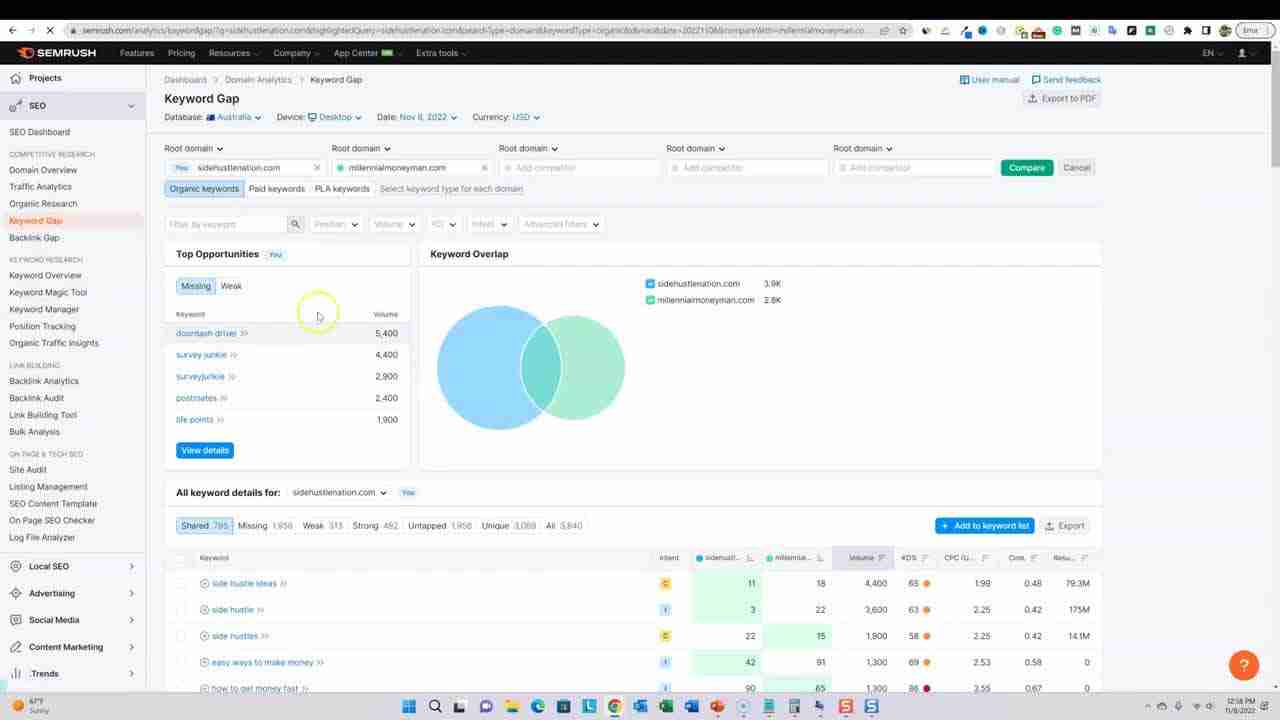
Traffic and Market Toolkit
Often referred to as Traffic Analytics or including the .Trends add-on, this toolkit helps you understand website traffic beyond just your own. You can analyze any website's traffic sources, audience engagement, and more. Market Explorer, part of .Trends, gives you a broader view of market trends and key players.
Local Toolkit
This is a big deal for businesses targeting local customers, and an area where Semrush has put a lot of effort. The Local SEO Toolkit is designed to improve your visibility in local search results. Key features include:
- Listing Management: This tool helps you distribute and maintain accurate business information (NAP - Name, Address, Phone number) across many online directories like Yelp, Google Business Profile, and others. Consistency here is very important for local SEO. It can also suppress duplicate listings.
- Position Tracking (Local): You can track your rankings in very specific local areas, even down to a neighborhood level, using a heatmap view to see how your visibility changes across a city for target keywords. This is much more granular than general rank tracking.
- Review Management: Monitor and respond to reviews from various platforms, including Google Business Profile, directly within Semrush. It can even use AI to help you draft replies, saving time while helping you engage with customers.
- Google Business Profile (GBP) Optimization: Semrush Local integrates with your GBP, allowing you to manage posts, view insights, and ensure your profile is complete and optimized directly from the Semrush interface.
- Local Competitor Analysis: The tools allow you to track how you stack up against local competitors in terms of rankings and online presence.
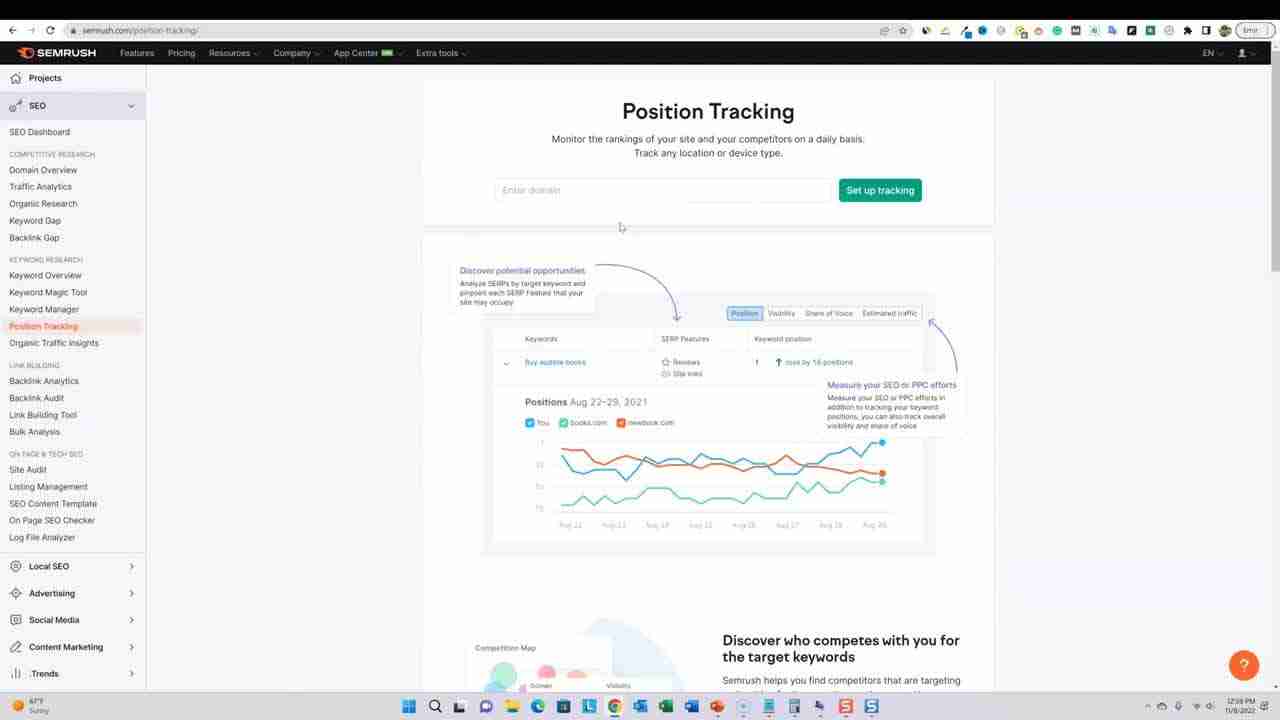
Semrush's Local SEO capabilities are often highlighted as being very strong, even when compared to other major players like Ahrefs. It’s a pretty complete solution if local search is important for your business.
Content Toolkit
This is often called the Content Marketing Platform or Toolkit. It helps with:
- Topic Research: Find content ideas based on your main keywords.
- SEO Content Template: Creates a brief for your writers based on top-ranking content.
- SEO Writing Assistant: Provides real-time feedback on your content's SEO, readability, tone of voice, and originality as you write.
- Content Audit: Analyze your existing content to see what’s performing well and what needs improvement.
AI Toolkit
Semrush has been integrating AI across its platform. This isn't a single toolkit but rather AI-powered features within other toolkits. Examples include:
- ContentShake AI: Helps generate content ideas and drafts.
- AI Writing Assistant (part of SEO Writing Assistant): Uses AI for content optimization suggestions.
- AI-powered review responses in the Local Toolkit.
- Copilot AI on project dashboards provides recommendations based on analysis of multiple Semrush tools.
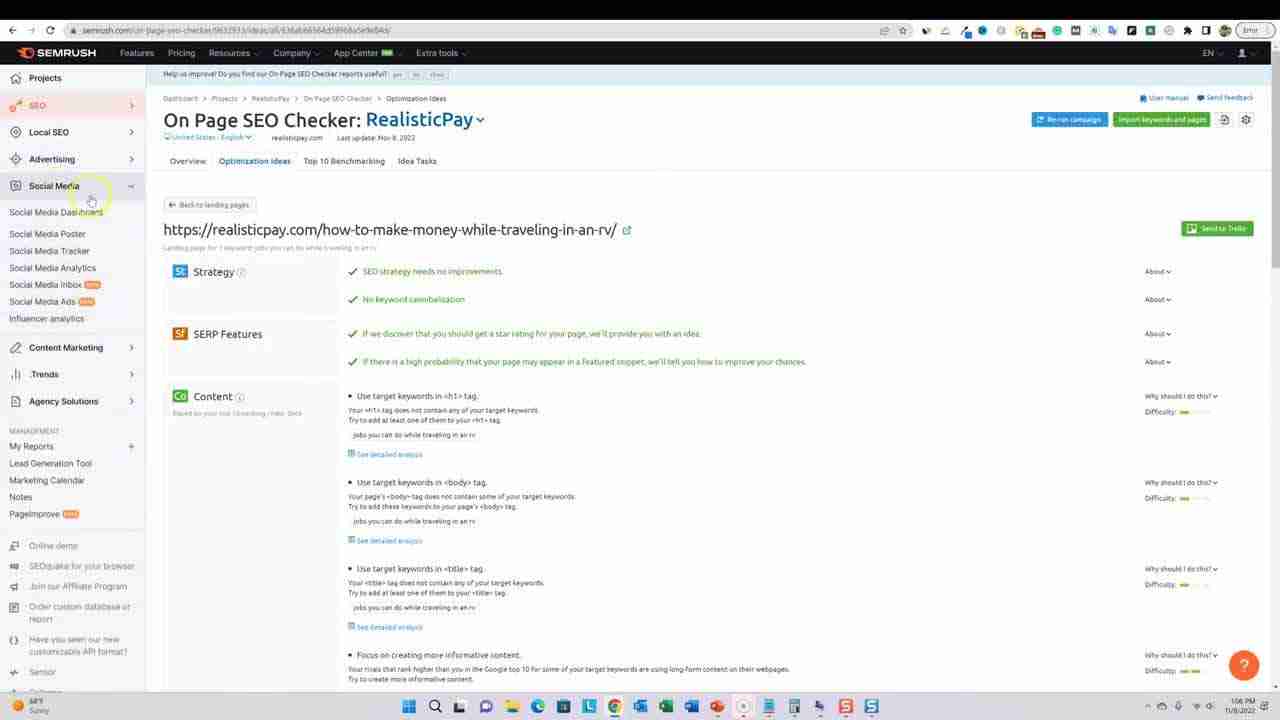
Social Toolkit
The Social Media Toolkit helps you manage your social media presence. You can schedule posts, track performance, analyze competitors, and run social media ads.
Advertising Toolkit
This toolkit is focused on PPC advertising. It allows for:
- Keyword Research for PPC: Find keywords for your ad campaigns.
- Competitor Ad Analysis: See your competitors' ad copy, keywords they are bidding on, and their ad spend.
- Display Advertising Tools: Analyze display ads from competitors.
Lead Generation Solution
This likely refers to tools like the Agency Growth Kit or Lead Finder add-ons. These are aimed at agencies or businesses looking to find and manage leads, particularly through the Semrush Agency Partners platform.
My Report Suite
Semrush offers robust reporting features. You can create custom PDF reports, schedule them, and even white-label them (on higher plans) to send to clients or stakeholders. You can pull data from various Semrush tools into these reports.
What are the Pros of Semrush?
Based on my use and what many others say, here are some strong points:
- Comprehensive Toolset: It’s an all-in-one platform with a massive number of tools for SEO, content, PPC, social media, and market research. You get a lot under one subscription.
- Excellent Keyword Research: The Keyword Magic Tool is a standout. The depth of keyword data, filtering options, and keyword intent analysis are very powerful.
- Strong Competitor Analysis: Semrush excels at giving you deep insights into what your competitors are doing online, from their organic rankings and backlinks to their ad strategies.
- Site Audit Feature: The site audit tool is thorough and helps identify technical SEO issues that could be hurting your rankings.
- User-Friendly Interface (Generally): For such a powerful platform, the interface is pretty well organized, though it can take time to learn everything. The data visualization is often praised.
- Great Local SEO Tools: As detailed above, their Local SEO toolkit is very robust and a major plus for local businesses.
- Content Marketing Tools: The SEO Content Template and SEO Writing Assistant are very helpful for creating optimized content.
- Reporting: The ability to create detailed and custom reports is valuable for agencies and in-house teams.
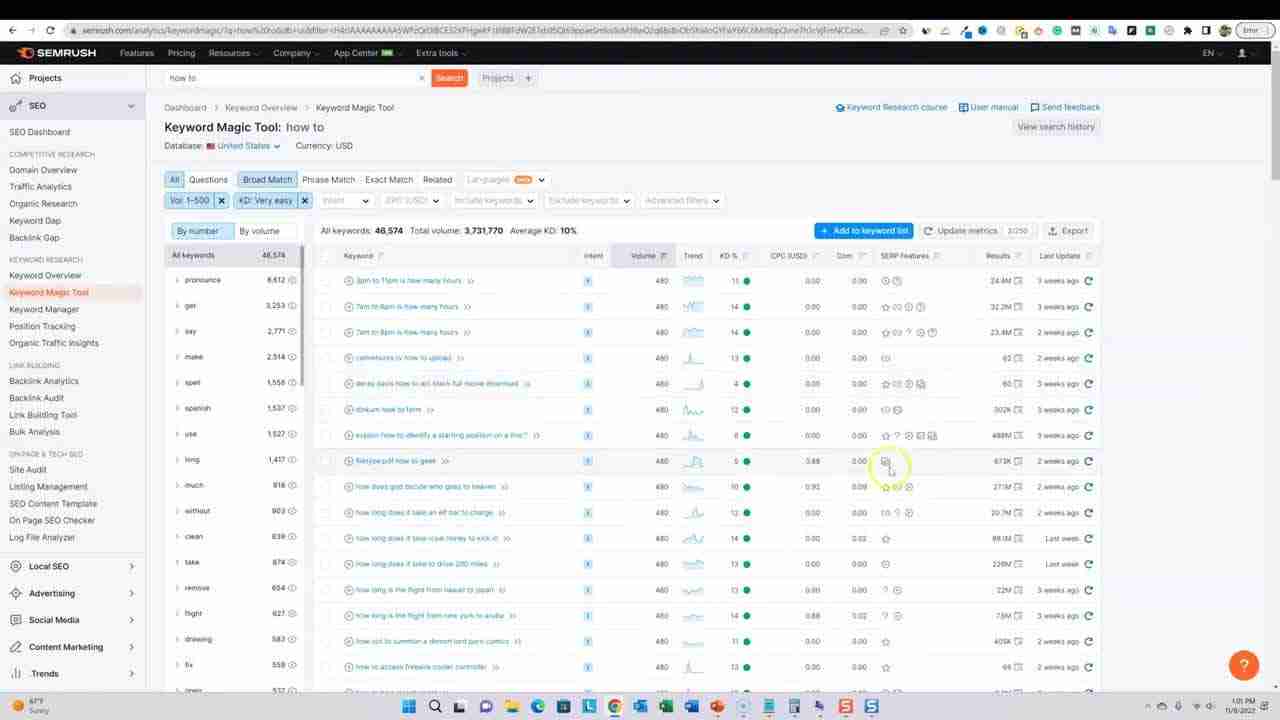
What are the Cons of Semrush?
No tool is perfect, and Semrush has some downsides:
- Cost: It’s not a cheap tool, especially for freelancers or small businesses just starting out. The plans can get expensive, and some advanced features or higher limits are only on pricier tiers or require add-ons.
- Learning Curve: Because it has so many features, it can be overwhelming for new users. It takes time to explore and master all the tools.
- One User Per Plan: Most standard plans only include one user seat. Adding more users costs extra per user, which can significantly increase the price for teams.
- Add-ons Can Be Pricey: Some specialized toolkits or features (like Semrush .Trends or advanced Local SEO features) are add-ons that come with an additional monthly cost on top of your base plan.
- Data for Google Only (Primarily): While Semrush is excellent for Google, its data for other search engines isn't as comprehensive.
- Occasional Data Discrepancies: Like all SEO tools, the data is an estimate and might not always be 100% accurate or match perfectly with other tools or your own analytics. Semrush itself notes that its traffic estimates for very low-traffic sites might be less accurate.
How Much Does Semrush Cost?
Semrush pricing can be a bit complex with its different plans and add-ons. As of my last check, here's a general idea of their core plans when billed monthly (they usually offer a discount for annual billing, around 17%):
| Plan | Price | Key Features | Ideal For |
|---|---|---|---|
| Pro | ~$139.95 | 5 Projects, 500 Keywords to Track, Keyword Research, Competitor Analysis, Site Audit, Limited Reporting. | Freelancers, startups, and new bloggers |
| Guru | ~$249.95 | All Pro features + 15 Projects, 1,500 Keywords to Track, Content Marketing Toolkit, Historical Data, Multi-location tracking. | Small to medium businesses, growing agencies |
| Business | ~$499.95 | All Guru features + 40 Projects, 5,000 Keywords to Track, API Access, Extended Limits, Share of Voice. | Larger agencies and enterprises |
It's important to note a few things:
- Add-ons: As mentioned, things like Semrush Local, .Trends, additional users, and specific agency tools often come with extra monthly fees. For example, Semrush Local plans can range from $30-$60 per month per location on top of your main subscription.
- Limits: Each plan has different limits on things like the number of projects you can create, keywords you can track, reports you can run per day, and pages you can crawl with the site audit tool. My video review mentioned the Pro plan having 5 projects and 500 keywords to track.
- Free Trial: Semrush often offers a free trial (sometimes an extended one through partners) so you can test it out before committing.
Always check their official pricing page for the most current details as these can change.
How to Get Started with Semrush
- Sign up for a trial or plan: Start with a free trial if available to see if it fits your needs. Choose a plan based on your budget and the features you require.
- Set up your first Project: A "Project" in Semrush is where you connect your website and set up various tracking and analysis tools for it, like Site Audit, Position Tracking, and On-Page SEO Checker.
- Explore the Dashboard: Familiarize yourself with the main dashboard. It gives an overview of your project's key metrics.
- Dive into Key Tools: Start by using the Domain Overview to analyze your website or a competitor's, then use the Keyword Magic Tool to find valuable keywords, and finally, run a Site Audit to identify and fix any technical issues on your site.
- Utilize Semrush Academy: Semrush offers a lot of free courses and certifications through Semrush Academy to help you learn how to use their tools effectively.
- Don't try to learn everything at once: Pick one or two areas you want to improve (e.g., keyword rankings or content) and focus on the relevant tools first.
Semrush Alternatives
While Semrush is a top player, there are other tools out there:
Ahrefs
Often considered Semrush's main competitor. Ahrefs is particularly strong in backlink analysis and has a very user-friendly interface. Pricing and feature sets are somewhat comparable, though there are differences in specific tool strengths and data.
Moz Pro
Another established name in SEO. Moz offers a suite of tools for keyword research, site audits, rank tracking, and link building. They are known for their "Domain Authority" metric.
Mangools
A more budget-friendly option that offers a suite of five tools (KWFinder, SERPChecker, SERPWatcher, LinkMiner, SiteProfiler). Good for beginners or those with simpler needs.
Ubersuggest
Founded by Neil Patel, Ubersuggest offers SEO tools at a lower price point, with some free features available. It covers keyword research, site audits, and competitor analysis.
SpyFu
Strong in competitor analysis, especially for PPC and SEO keywords. It focuses on "spying" on what your competitors are doing.
Serpstat
An all-in-one SEO platform that offers keyword research, rank tracking, site audit, competitor analysis, and backlink analysis. It's generally considered more affordable than Semrush or Ahrefs.
Summary
Semrush is a powerful and wide-ranging platform for anyone serious about improving their online visibility. Its strengths in keyword research, competitor analysis, site audits, and especially its comprehensive Local SEO toolkit make it a valuable asset for many marketers, businesses, and agencies. While it comes with a notable price tag and a learning curve, the depth of data and the breadth of tools can provide a significant return if used effectively. The Keyword Magic Tool alone is worth checking out.
